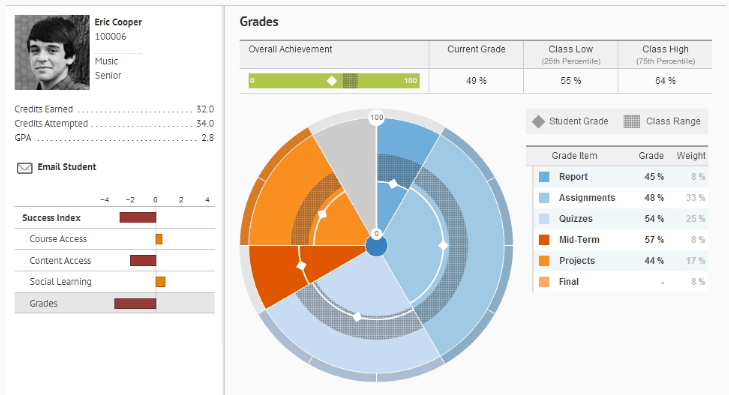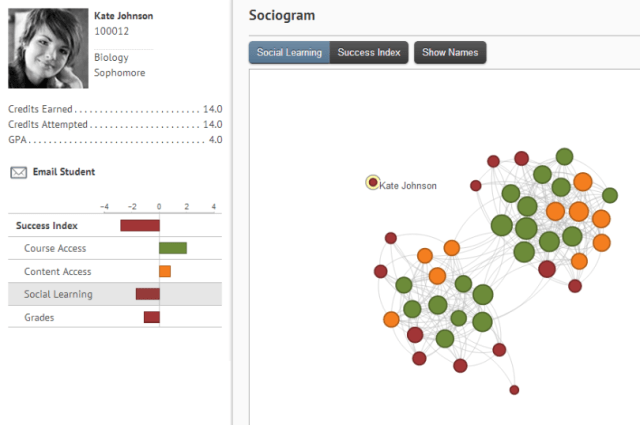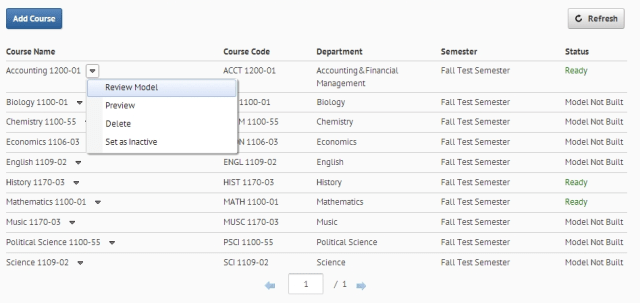Desire2Learn is a 10-plus year old Canadian company that makes learning software — a learning management system to be precise — and here’s why, in spite of that description, it shouldn’t bore you to sleep. In a space that’s traditionally been controlled by bigs like Blackboard and Moodle, Desire2Learn has quietly managed to carve out its own growing share of the market.
Last September, the Waterloo-based company raised a sizable $80 million round from NEA and others, and today has over 700 clients and more than 10 million people across higher education, K-12, healthcare and beyond are using its learning software.
Although the company doesn’t disclose financial information, we’ve heard that its institutional contracts are now translating into millions in revenue, which along with its raise, has allowed it to expand its staff from 600 to over 750 over the last year. In turn, the company has been ramping up its focus on acquiring EdTech talent and is rumored to be planning an IPO in the U.S. at some point down the road.
While Desire2Learn has established a solid base, it’s strategic M&A that can help lead the way forward, fighting off a flattening growth curve and leading to better products. The company has been acquiring with more frequency of late, including two back-to-back in January and March.
Desire2Learn acquired course recommendation engine, Degree Compass in March and is already putting its tech to use to continue expanding its learning platform. This week, the company announced what it called “the biggest update to its Learning Suite to date” — an update in which Degree Compass’ tech plays a central role, not only by expanding its toolset but by potentially changing the way students navigate their academic career.
To do this, Desire2Learn wants to bring predictive analytics into play in education. But why? Well, first and foremost because, today, if students want to figure out whether a course is right for them — or how well they might perform in that course — they’re hard pressed to find a good answer. They can ask fellow students, check websites that rank faculty based on nebulous criteria or try to find surveys, but none of these options are ideal.
With its new analytics engine, Desire2Learn aims to change that by giving students the ability to predict their success in a particular course based on what they’ve studied in the past and how they performed in those classes. The new, so-called “Student Success System,” was built (in part) from the technology it acquired from Degree Compass; however, while Degree Compass used predictive analytics to help students optimize their course selection, the new product aims to help both sides of the learning equation: Students and teachers.
On the teacher side, Desire2Learn’s new analytics engine allows them to view predictive data visualizations that compare student performance against their peers so that they can identify at-risk students, for example, and monitor a student’s progress over time.
The idea is to give teachers access to important insight on stuff like class dynamics and learning trends, which they can then combine with assessment data, to improve their instruction or adapt to the way individual students learn. In theory, this leads not only to higher engagement, but also better outcomes.
For students, they use Desire2Learn as they normally would, using it to view course materials, take quizzes, submit homework and chat with their peers. The platform then collects and analyzes each student’s personal data and, by drawing from a wider set of inputs, the engine can more accurately predict which classes students will perform best in and what their grades will be.
The system is currently operating at about 90 percent accuracy when it comes to predicting performance by letter grades, CEO John Baker tells us — a number which should improve as the engine accumulates more data, he says.
In addition to its predictive analytics, Desire2Learn is also making some significant updates to its mobile app, including new integrations with Dropbox and SkyDrive to allow students to engage with learning resources in the same way they do outside the classroom. What’s more, Desire2Learn is moving into Patbrite’s territory through ePortfolio and its new tool which allows students to build portfolios based on their in-school projects, grades and achievements in a way that’s applicable to life after school and finding a job.
Essentially, the tool allows students to move their academic resume to the cloud so they can take it with them after they graduate, which the company is incentivizing by offering 2GB of free storage.
Basically, what we’ve come to realize, the Desire2Learn CEO tells me, is that the company’s initial approach to business (or academic) intelligence was off track. “Students and teachers don’t necessarily want more data, they want more insight and they want that data broken out in a way that they can understand and helps them more quickly visualize the learning map,” he says.
When I asked if building and adding more and more tools and features would dilute the experience and result in feature overload, Baker said that the company doesn’t want to build a million different tools. Instead, it wants to become a platform that supports a million tools and allows third-parties that specialize in particular areas of education to help develop better products.
Through open-sourcing its APIs, Desire2Learn along with Edmodo and an increasing number of education startups are beginning to tap into the potential inherent to the creation of a real ecosystem. Adding predictive analytics tools gives Desire2Learn another carrot with which they hope to be able to draw both teachers, students and development partners into its ecosystem.


